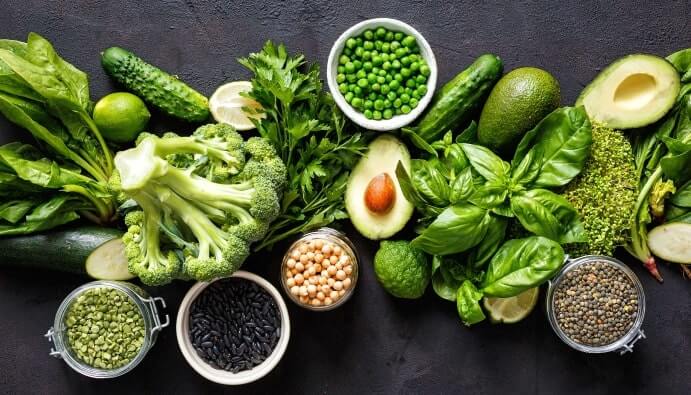Vitamin K in Foods: Analysis for Health and Nutrition
Why is Vitamin K in Foods Analyzed?

What is Vitamin K?
Vitamin K is the generic name for a group of lipophilic (fat-soluble) vitamins that promote blood clotting, support bone health and activate certain enzymes in the body. Vitamin K is usually found in two main forms:
- Vitamin K1 (Phylloquinone): Found mostly in green leafy vegetables and some vegetable oils. Vitamin K1 plays a key role in the production of clotting factors.
- Vitamin K2 (Menaquinone): Found in some animal products and fermented foods. Vitamin K2 helps to improve bone health and is converted to K1 in the body.
Vitamin K deficiency can lead to various health problems such as bleeding disorders, osteoporosis and heart disease. It is therefore important to have an adequate intake of vitamin K.
What are the health effects of vitamin K?
Vitamin K is associated with the following key health functions:
- Blood Clotting: Vitamin K plays a critical role in the synthesis of a protein called prothrombin, which helps blood clot. Vitamin K deficiency can cause excessive bleeding and clotting disorders.
- Bone Health: Vitamin K2 supports bone mineralization and bone health. Vitamin K2 helps calcium in bones to settle properly and may reduce the risk of osteoporosis.
- Cardiovascular Health: Vitamin K also plays an important role in heart health due to its effect on veins and arteries.
- Vitamin K2 helps protect blood vessels from calcium and may prevent arteriosclerosis.
Determination of Vitamin K in Foods
Accurately determining the amount of vitamin K in foods helps people ensure that they are getting enough. Vitamin K determination can be done by various analytical methods. These methods are used to determine the types of vitamin K (K1 and K2) present in foods.
- HPLC (High Performance Liquid Chromatography): HPLC is the most widely used technique for vitamin K determination. This method offers a very sensitive and reliable analysis to distinguish between vitamin K1 and K2 in foods.
- Spectrophotometric Method: Spectrophotometry is another common method used for the determination of vitamin K compounds in foods. Vitamin K absorbs light at specific wavelengths and this property is used to measure the amount of vitamin K.
- LC-MS/MS (Liquid Chromatography-Mass Spectrometry): This is a highly sensitive technique for the determination of vitamin K and is particularly used for analyzing more complex compounds such as vitamin K2. LC-MS/MS offers the possibility of both qualitative and quantitative analysis.
Nanolab Laboratories Group continues to provide services within the scope of Vitamin K Determination in Foods. We also provide services in Vitamin Determination in Foods.
Contact us for more information.
You can follow us on LinkedIn for up-to-date news and posts about our services.
Follow our Instagram account to be informed about our latest blog posts.

